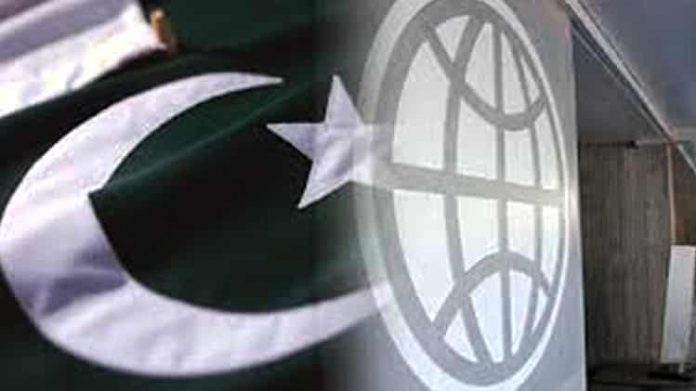
LAHORE: The World Bank on Sunday in its report “South Asia Economic Focus, Jobless Growth” projected inflation to rise in the financial year 2018-19 and remain high till FY20 due to moderate increase in international oil prices and exchange rate pass-through to domestic prices.
According to WB, Pakistan’s economy is projected to grow at 5.8 percent for FY 2017-18 driven by improvements in energy supply, CPEC related infrastructure projects, and consistent private consumption growth.
But it said as the country’s growth was accelerating, macroeconomic imbalances were widening and remained a major worry for the near-term economic outlook.
Also, these recent economic developments have helped to grow the country’s GDP growth by 0.8 percentage points over the previous year, touching 5.4 percent in FY17.
WB said this was largely driven by marked improvements in the agricultural, services sector with nominal recovery in the industrial sector too.
The report highlighted private sector growth was driven by a low-interest rate environment which provided support to businesses.
And the WB recommended various short-term measures would be needed to rectify domestic and external imbalances, which need to be augmented by the enactment of medium-term reforms.
Inflation for first 8 months of FY 2017-18 (July-March) was recorded at 3.8 percent against 4.0 percent in same period of last financial year, well below the target of 6 percent for FY18, said WB.
It added, the balance of payments remained under pressure because of burgeoning current account deficit which reached 3.4 percent in first eight months (July-March) of FY 2017-18.
Exports after registering contracting for three successive financial years, showed signs of recovery in FY18, but high import growth contributed to an increase in the trade deficit, said the report.
The fiscal deficit, according to WB remained somewhat subdued during the first half of FY 2017-18, touching 2.2 percent of GDP compared to 2.5 percent in first half of FY17.
17.5 percent growth was recorded in tax revenues of Federal Board of Revenue (FBR), touching Rs1,992 billion against Rs1,696 billion, said WB.
The report stated public debt to GDP ratio also worsened to 65.7 percent of GDP by end of first half of FY 2017-18 against 64.5 percent during first half of FY17.
Also, WB predicted after the general election, expected policy revisions to rectify for macroeconomic balances are forecasted to contribute to a slowdown in growth in FY19 because of fall in investment and domestic consumption.
Furthermore, “growth is expected to recover in FY20 and reach 5.4 percent. This recovery is contingent upon restoring and preserving macroeconomic stability, as well as steady progress in implementing reforms which tackle key growth constraints. The outlook assumes that oil prices will increase moderately but remain low and that political and security risks will be managed,” said WB.
Current account deficit is expected to remain under stress as the trade deficit is forecast to stay at an elevated level during FY 2018-19.
WB predicted rising exchange rate flexibility would assist exports and imports may subdue during FY 2018-19.
However, remittances are expected to partially finance the current account deficit but lower growth in GCC countries could impact migrant employment options and rise in remittances, said WB.
In the medium-term, WB said it is expected multilateral, bilateral, private-debt and foreign direct investment (FDI) inflows would remain the main financing sources in the medium term.
Regarding external financing needs, the WB predicted the government would continue accessing international markets.
It added the fiscal deficits are forecast to narrow in FY 2018-19 as authorities could revise macroeconomic policies.
“The adjustment will come initially on the back of scaling down in investment spending both at the federal and provincial level. However, bolstering of revenues because of expanding the tax base and other administrative measures will support fiscal consolidation,” said the report.
WB expressed concerns over the balance of payments position, which it said was very “vulnerable” at the present level of forex reserves.
The forthcoming general election could cause a delay in pivotal policy changes such as fiscal consolidation and increased exchange rate flexibility, till the conclusion of elections, WB predicted.
But the Washington-based lender highlighted the government in the medium-term would require inputting major effort to reform its tax system and address competitiveness challenges.
To achieve higher and sustainable export growth, Pakistan would need to focus on lowering the cost of doing business and increasing productivity, said the WB.





